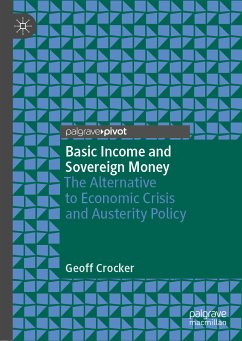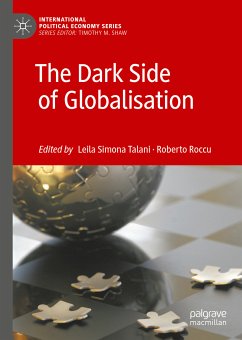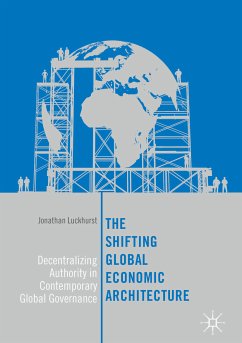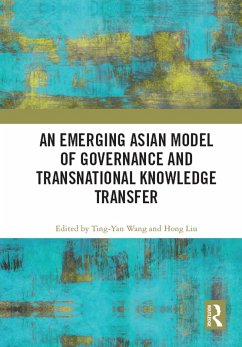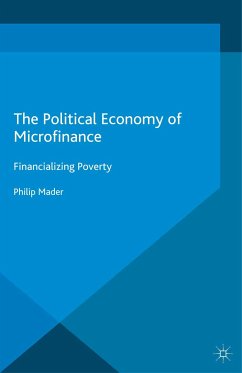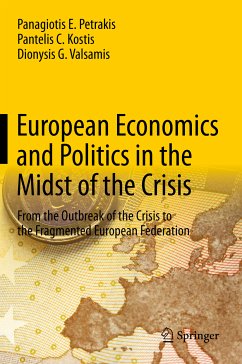
Institutional Learning and Knowledge Transfer Across Epistemic Communities (eBook, PDF)
New Tools of Global Governance
Versandkostenfrei!
Sofort per Download lieferbar
72,95 €
inkl. MwSt.
Weitere Ausgaben:

PAYBACK Punkte
36 °P sammeln!
Over the past several decades, as the pace of globalization has accelerated, operational issues of international coordination have often been overlooked. For example, the global financial crisis that began in 2007 is attributed, in part, to a lack of regulatory oversight. As a result, supranational organizations, such as the G-20, the World Bank, and the International Monetary Fund, have prioritized strengthening of the international financial architecture and providing opportunities for dialogue on national policies, international co-operation, and international financial institutions.Prevail...
Over the past several decades, as the pace of globalization has accelerated, operational issues of international coordination have often been overlooked. For example, the global financial crisis that began in 2007 is attributed, in part, to a lack of regulatory oversight. As a result, supranational organizations, such as the G-20, the World Bank, and the International Monetary Fund, have prioritized strengthening of the international financial architecture and providing opportunities for dialogue on national policies, international co-operation, and international financial institutions.
Prevailing characteristics of the global economic systems, such as the increasing power of financial institutions, changes in the structure of global production, decline in the authority of nation-states over their national economy, and creation of global institutional setting, e.g., global governance have created the conditions for a naturally evolving process towards enabling national epistemic communities to create institutions that comply with global rules and regulations can control crises.
In this context, transfer of technical knowledge from the larger organizations and its global epistemic communities to member communities is becoming a policy tool to "convince" participants in the international system to have similar ideas about which rules will govern their mutual participation. In the realm of finance and banking regulation, the primary focus is on transfer of specialized and procedural knowledge in technical domains (such as accounting procedures, payment systems, and corporate governance principles), thereby promoting institutional learning at national and local levels. In this volume, the authors provide in-depth analysis of initiatives to demonstrate how this type of knowledge generated at the internationalorganization level, is codified into global standards, and disseminated to members, particularly in the developing world, where the legal and regulatory infrastructure is often lacking. They argue that despite the challenges, when a country intends to join the global system, its institutions and economic structures need to move toward the global norms. In so doing, they shed new light on the dynamics of knowledge transfer, financial regulation, economic development, with particular respect to supporting global standards and avoiding future crises.
Prevailing characteristics of the global economic systems, such as the increasing power of financial institutions, changes in the structure of global production, decline in the authority of nation-states over their national economy, and creation of global institutional setting, e.g., global governance have created the conditions for a naturally evolving process towards enabling national epistemic communities to create institutions that comply with global rules and regulations can control crises.
In this context, transfer of technical knowledge from the larger organizations and its global epistemic communities to member communities is becoming a policy tool to "convince" participants in the international system to have similar ideas about which rules will govern their mutual participation. In the realm of finance and banking regulation, the primary focus is on transfer of specialized and procedural knowledge in technical domains (such as accounting procedures, payment systems, and corporate governance principles), thereby promoting institutional learning at national and local levels. In this volume, the authors provide in-depth analysis of initiatives to demonstrate how this type of knowledge generated at the internationalorganization level, is codified into global standards, and disseminated to members, particularly in the developing world, where the legal and regulatory infrastructure is often lacking. They argue that despite the challenges, when a country intends to join the global system, its institutions and economic structures need to move toward the global norms. In so doing, they shed new light on the dynamics of knowledge transfer, financial regulation, economic development, with particular respect to supporting global standards and avoiding future crises.
Dieser Download kann aus rechtlichen Gründen nur mit Rechnungsadresse in A, B, BG, CY, CZ, D, DK, EW, E, FIN, F, GR, HR, H, IRL, I, LT, L, LR, M, NL, PL, P, R, S, SLO, SK ausgeliefert werden.





